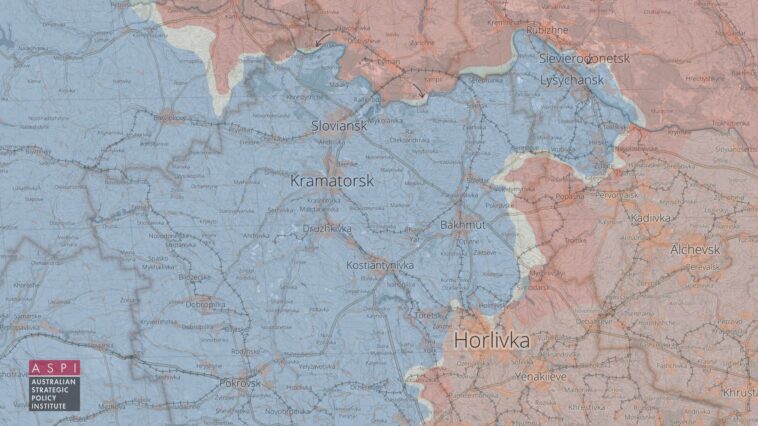Russia strikes Kharkiv. On the evening of June 7, Russia struck residential areas of Kharkiv, mayor Ihor Terekhov said.
“One of the residential areas of Kharkiv has just been attacked. One person was killed. So far we know of three wounded,” Terekhov said on television.
Occupied Mariupol risks cholera outbreak. Infectious diseases may rapidly spread in devastated Mariupol as sanitary conditions are poor and the weather gets hot, the city council of Mariupol warned in the past weeks. The city council maintains contact with sources in the occupied city.
“Dozens of thousand deaths of a cholera epidemic is a potentially realistic scenario for occupied Mariupol,” the city council said on Telegram on June 6.
Russian occupying troops begin to close the city possibly amid first reports of a cholera outbreak, advisor to the mayor of Mariupol Petro Andryushchenko said on television. “We’re watching the city shut down. Reports begin to surface that Russia has prepared infectious diseases units in Rostov-on-Don ready to take Russian military that may get hit by the outbreak. In the city, the occupation administration and Russian masterminds speak of cholera,” Andryushchenko said.
As of early June, a number of reasons may cause a cholera epidemic in Mariupol, the city council explained. There is no central water supply, no sewer system. Waste is neither removed, nor disposed. The city drowns in waste and human waste. There are graves in nearly every courtyard. Besides, heat speeds up decomposition of thousands of bodies under the rubble. There is no adequate healthcare provision. There are no medicines, and medical facilities are destroyed. Most valuable pieces of equipment were taken away, and best medics left.
Waste, human waste, and cadavers’ poisons constantly pollute the sea and water basins. Humanitarian corridors and full evacuation by an international humanitarian mission could save the residents, Mariupol’s Ukrainian city authorities said.
Russia chose the most cynical way to fight the epidemic by blocking people in Mariupol, Andryushchenko said. “Occupants decided to leave it all as it is. Those who will survive, will survive,” advisor to the mayor of Mariupol.
Nearly 100-120 thousand residents remain in Mariupol. They try to survive in the city without basic hygienic conditions.
The number of residents shrunk four-five times as 200,000 people left to Ukraine-controlled area, 50,000-70,000 are in villages by the Azov Sea or in occupied territory in Ukraine’s south and east. Forty-seven thousand were deported or forced to leave Ukraine for Russia and Belarus. Russian forces killed more than 22 thousand residents of Mariupol.
More than 10,000 people will have fallen victim to diseases and intolerable conditions by the end of the year, the city council of Mariupol said. Cholera, dysentery, and Escherichia coli infection are some of them.
Why soften sanctions, Office of Ukraine’s President asks EU. In the official news bulletin announcing more sanctions, the EU removed a mention of Russia being cut off cloud services. Ukraine would like an explanation why, advisor to the head of the Office of the President of Ukraine Mykhailo Podoyak said.
“At first, the EU Council announces the blockage of Russia from EU cloud services in the Sixth Sanction Package. Then, the EU Council edits the message removing these references. No clarifications or explanations from the officials. We must increase the sanctions pressure, not decrease,” Podolyak twitted.
Ukraine in Flames #89: Heroes from utility services: How ordinary Ukrainians secure our everyday life
All the attention now is paid to Ukrainian heroic fighters on the frontline. They are paying with their lives for the freedom of our country, for the lives and well-being of the whole civil population. And – for the peace of all Europe and even other regions of the world.
Of course our soldiers need not only symbolic support – but also the best weapons to keep the aggressor’s offensive and liberate the occupied cities and villages.
But today we decided to dedicate the episode of “Ukraine in Flames” to the other heroes, not so obvious for the first glance. That is the workers of the communal utility services – workers of city gas pipelines, public transport, city gardening etcetera.
All these workers have almost the same risk to die or be injured, as the frontline soldiers. Sometimes they have to operate in horrific conditions under the Russian shellings, they can trap on a mine, and usually they are dramatically underpaid.
Speakers:
Oleh Vasyliev, transport expert, YouTube blogger
Iryna Krisanova, head of Department of Outer Communications at Mykolaivgaz
Dmytro Grytsai, Technical Director of Mykolaivgaz

